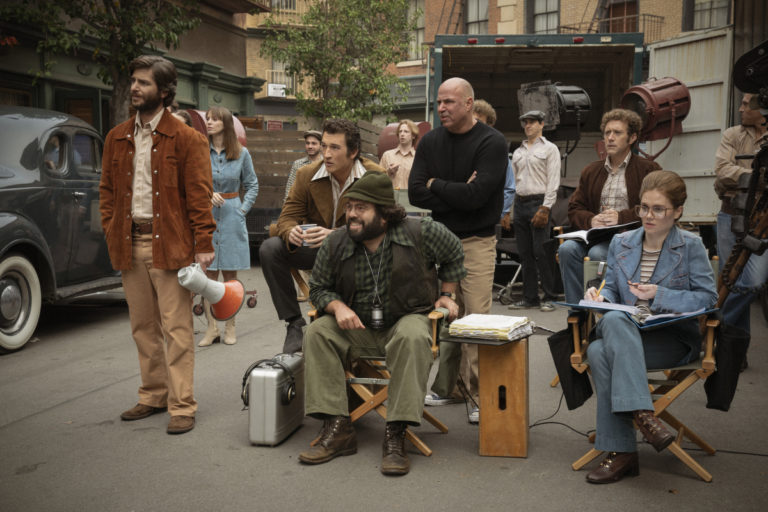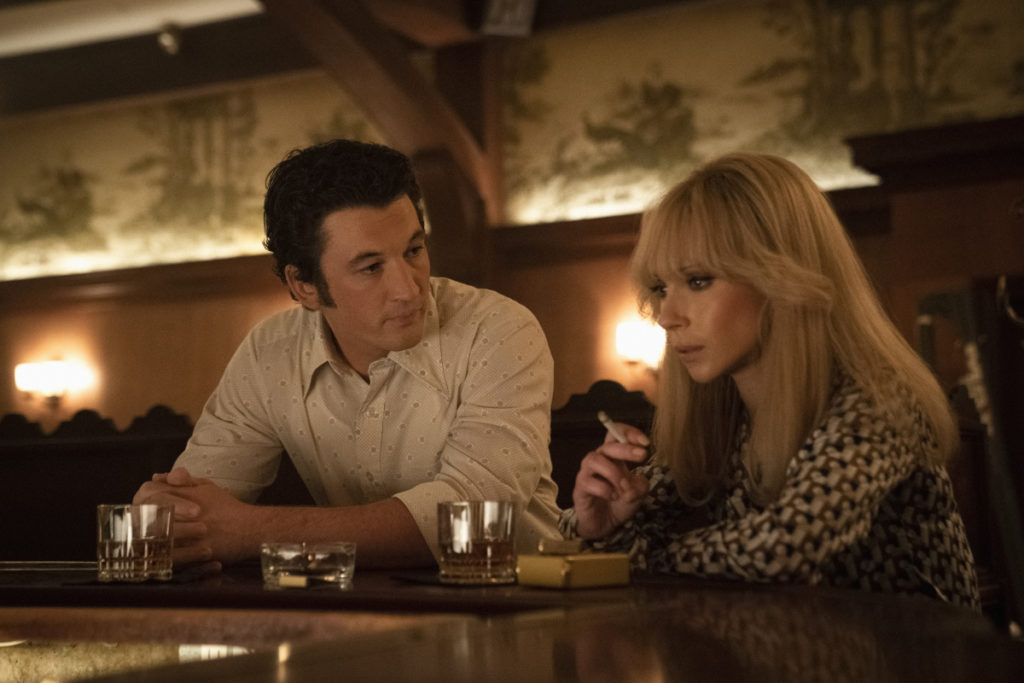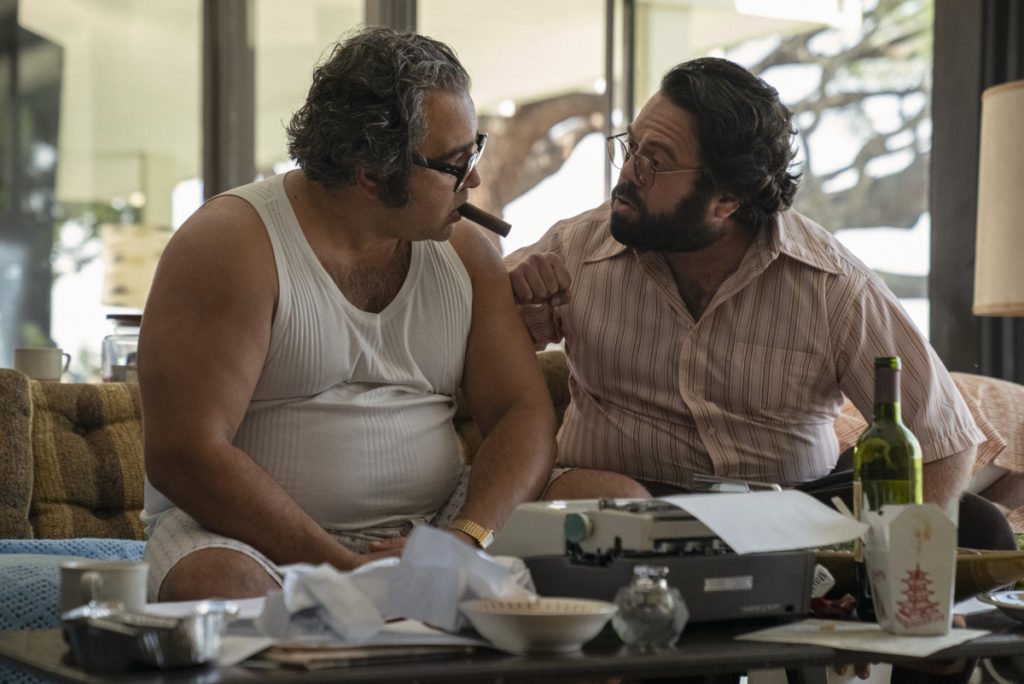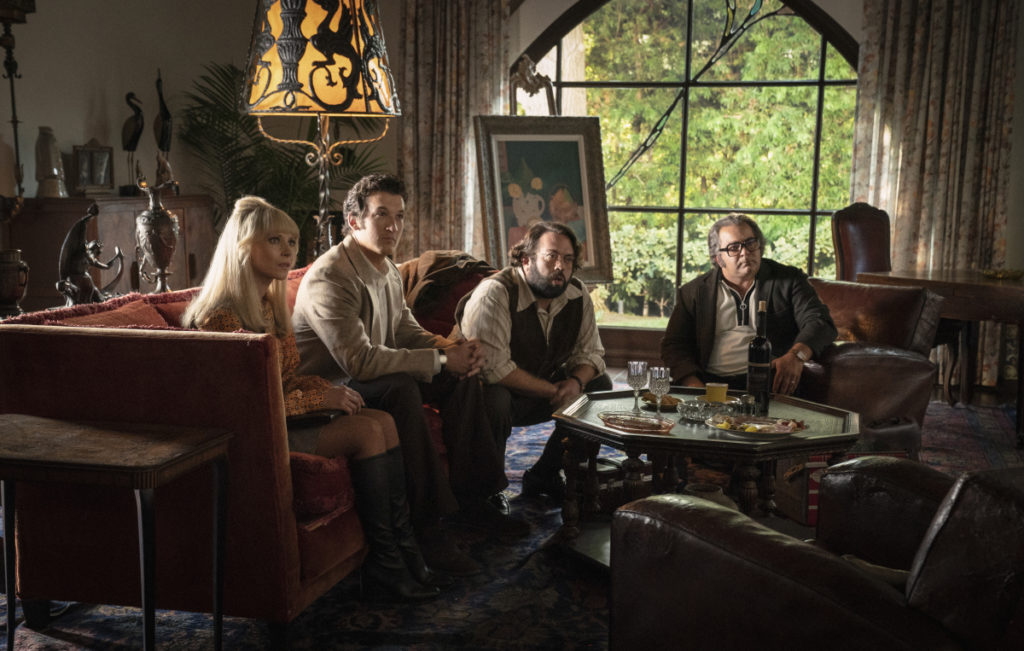
Synopsis : The Offer is based on Oscar®-winning producer Albert S. Ruddy’s extraordinary, never-revealed experiences of making “The Godfather.” The all-star cast includes Miles Teller as Albert S. Ruddy, Matthew Goode as Robert Evans, Juno Temple as Bettye McCartt, Giovanni Ribisi as Joe Colombo, Dan Fogler as Francis Ford Coppola, Burn Gorman as Charles Bluhdorn and Colin Hanks as Barry Lapidus.
The 10-episode event series is created and written by Oscar® and Emmy-nominated writer Michael Tolkin (“Escape at Dannemora,” “The Player”) and also written and executive produced by Nikki Toscano (“Hunters”), who also serves as showrunner. In addition to Tolkin and Toscano, two-time Oscar®-winner Albert S. Ruddy (“Million Dollar Baby,” “The Longest Yard,” “Hogan’s Heroes”), Miles Teller, Russell Rothberg and Leslie Greif serve as executive producers on the series alongside Dexter Fletcher (“Rocketman”), who also directed the first block of the series.

An Exclusive Interview with Creator/Writer/Executive Producer Michael Tolkin
Q: Albert S. Ruddy is still alive and well. Have you met him? What is the fascination with Albert S. Ruddy and how did you decide to tackle this project?
MT: Nicole Clemens, the head of Paramount TV, called me and asked if I would be interested in taking on this project. I met Al Ruddy because it was his story that we were telling, and I spent about a week interviewing him for, altogether, about ten hours. I put together a document of all the anecdotes and stories, and they were amazing to hear. I knew we had a TV show and I wanted to write it.
Q: Before watching this series, Initially, I thought that Robert Evans played a significant role in the making of “The Godfather.” But clearly “The Godfather” was Ruddy’s vehicle. At the same time, Evans was actually making Paramount the most successful studio in Hollywood. Could you talk about the process of writing about Robert Evans in this series?
MT: We relied on Ruddy’s stories — on his version of events. This is Ruddy’s story. Robert Evans is usually… He has the kind of a reputation which doesn’t take him seriously anymore. He’s portrayed as a super-tan guy whose teeth are shining all the time, and he says “Bubi” a lot. What we did with this story was to really take him seriously and show the dynamic of Evans and making a movie, and working with all the different people.
Q: It’s fascinating hearing about Francis Ford Coppola and Mario Puzo writing a screenplay together. There’s obviously famous lines like, “I’m going to make him an offer he can’t refuse,” or “sleeping with the fishes” and all those famous lines. What was the attraction for that “dynamic duo”to create this wonderful screenplay? How did you insert that into this series?
MT: This is a story about making a movie about a family. So we wanted to make “The Offer” about a family — or really, three families. There’s the mobster family, there’s the Al-Ruddy-making-the-movie family, and then there’s the studio-Paramount-Pictures family. The dynamic is there — there’s a scene in “The Godfather” where Clemenza is cooking, making his sauce, and gets into a tiff over whether it should be fried or broiled. The delight of showing that these powerful people are, first and foremost, people who exist in the real world was exactly what we wanted to convey.

Q: I was surprised that Ruddy talked to the Mafia guys, like Joe Colombo. People don’t usually mess around with Mafia guys. Were you surprised at that? At the same time, there are a lot of scenes where he’s actually associating with Mafia guys, because of his “The Godfather” project. How do you construct the way you wanted to show this series, because at the same time, it touches on the subject so you want to show how it was made. Could you talk about that process of adding the Mafia angle to the story of making “The Godfather”?
MT: Making the Mafia story… I think one of the things I wanted to do was tell a gangster story, but a Mafia story that wasn’t so familiar, that wasn’t made of the Mafia movie clichés we’ve inherited. So we made Joe Colombo as an original character, because he’s, in a way, self-destructive and, in a way, heroic. We wanted to convey what he did for Ruddy. When Colombo decides that Ruddy is a stand-up guy and can be trusted, he opens the Mafia to Ruddy. At one point, Ruddy is warned, don’t cross the line with them because once you cross that line, you can never go back.
Q: When Ruddy pitched the idea of making “The Godfather” to Charles Bluhdorn, the head of Gulf+Western which owned Paramount at that time, Ruddy said, “ I’m going to make an ice-blue terrifying film about people you love.” If you were in the same position as Ruddy back then, how would you have pitched Bluhdorn?
MT: I’d pitch, “It’s going to make a billion dollars.” I’d pitch, “This is the greatest movie ever made, and we haven’t made it yet. Trust me, it’s going to be great.”
Q: Why was Robert Evans so insistent on not hiring Al Pacino back then. Clearly once you see Al’s great performance on stage, it was so surprising that Evans was so insistent on not hiring him.
MT: Evans was looking for an established movie star to make the movie, and Al Pacino was not an established movie star yet. He had been in a couple of off-Broadway plays and one movie, and nobody knew who he was. So it was perfectly within Evans’s area of concern to want somebody more famous in that role. Eventually he was convinced, and he accepted [him] and was grateful for it.

Q: The press was suspicious about the making of “The Godfather” and the gangsters hated the fact that they were making the film. Bluhdorn and Jack Ballard offered support, while Ruddy refused it. I was surprised about that because it’s quite difficult to make a film, particularly when you don’t have that much experience — which Ruddy lacked back then. But he insisted on making his solitary “vision” rather than get involved with Bluhdorn, Ballard or people who could have been involved.
MT: One of the things the show is about is the cost that people pay for getting the movie made right. Everybody comes into it with what Andrea Eastman said about it: “We joined the circus, and everybody else is just a civilian.” So this is really about ambition, clarity of vision, and fighting for what he knew was the best way to tell the story.
Q: I didn’t know that the Corleone mansion was in Staten Island. Did you really go there to shoot the mansion?
MT: No. No, we never went that way. I don’t believe they moved the production to Long Island. Everything was here in California. So “The Godfather” they shot in Long Island, yes. We didn’t.
Check out more of Nobuhiro’s article.
Here’s the trailer of the series.

